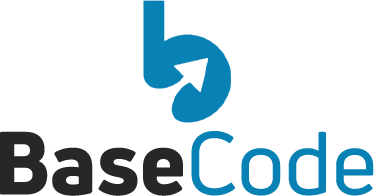If you have ever walked into your own shop only to realise that a customer’s favorite product is “finished” just when demand is highest, you know the pain of a stockout. In Nigeria, where customers are quick to move on to the next available seller, a single stockout can mean losing a loyal buyer and possibly a few referrals. The truth is, no matter how great your location, marketing, or customer service is, running out of stock at the wrong time can kill sales and affect your reputation.
The good news is that stockouts are not unavoidable. With the right tools, you can track inventory in real time, plan ahead for replenishment, and even automate parts of the process. One tool that is making this easier for Nigerian retailers is Zoho Inventory.
In this post, we will explore why stockouts are such a big problem in the Nigerian retail space, the common causes, and how Zoho Inventory can help you stay ahead.
Why Stockouts Are a Major Problem for Nigerian Retailers
In Nigeria, retail competition is fierce. Whether you run a supermarket in Abuja, a boutique in Lagos, or a small electronics store in Port Harcourt, customers have plenty of alternatives. If they do not get what they want from you, they will cross the road to another store or order online from a competitor.
Stockouts not only cause missed sales but also affect customer trust. Imagine a loyal customer who comes back multiple times only to hear “We don finish am” each visit. Over time, they may stop checking your store first.
Other hidden costs of stockouts include:
-
Emergency restocking costs (buying at higher prices to meet sudden demand)
-
Rush delivery fees when ordering urgently from suppliers
-
Lost upselling opportunities since a missing product can mean losing related sales
Common Causes of Stockouts (And How to Avoid Them)
Before we dive into how Zoho Inventory can help, it is important to understand the common reasons why stockouts happen in Nigeria:
-
Poor demand forecasting
Some retailers rely on guesswork when placing orders instead of using past sales data to predict demand. -
Manual inventory tracking
Tracking stock with pen and paper or spreadsheets may work for a while, but human error can easily lead to wrong counts. -
Supplier delays
In Nigeria, supplier reliability can vary. A single delayed shipment can cause a chain reaction that leaves your shelves empty. -
Not syncing sales channels
If you sell both online and offline but do not update stock in real time, you can sell more items than you actually have.
The solution is to use a system that removes guesswork, gives real-time updates, and keeps all sales channels in sync. This is where Zoho Inventory comes in.
Key Features of Zoho Inventory That Help
Zoho Inventory is designed to make inventory tracking easier for businesses of all sizes. Here are the features that can directly help you prevent stockouts:
-
Stock tracking in real time
You can see exactly how many units you have at any moment, whether they are on your shelf or in transit. -
Low stock alerts
The system can notify you before stock finishes so you can reorder on time. -
Multi-channel selling
Zoho Inventory can sync your stock levels across different platforms, whether you sell in-store, on social media, or through e-commerce websites. -
Reporting and analytics
You can view sales patterns and make better purchasing decisions.
Real-Time Stock Visibility and Alerts
One of the biggest challenges Nigerian retailers face is knowing their actual stock level at any given time. Many people wait until the last minute before checking stock, which often leads to surprises.
With Zoho Inventory, you can log in from your phone or laptop and see exactly how many pieces are left, even if you are not at the store. If a fast-selling product is running low, you get an alert before it sells out completely.
This feature alone can save you from countless “sorry, we don finish am” moments.
Syncing Sales Channels for Accurate Stock Levels
For retailers selling on multiple platforms, stock discrepancies are a common problem. You might sell the last unit of a product in your physical store, but your online store still shows it as available. This can lead to awkward customer conversations and lost trust.
Zoho Inventory automatically updates stock levels across all your connected sales channels. This means if someone buys the last item in-store, the online listing will immediately reflect “out of stock” until you restock.
You may like to read this: Best Digital Tools to Help Nigerian Businesses Compete Globally – This article explores other powerful digital solutions that can boost your competitiveness in the Nigerian market.
Automating Purchase Orders and Reorders
One of the most powerful features of Zoho Inventory is automation. You can set reorder points for each product so that when stock falls below a certain number, the system automatically creates a purchase order for your supplier.
For example, if you know a particular soft drink sells 50 crates every month, you can set a reorder point of 20 crates. Once you hit that number, Zoho Inventory generates a purchase order, saving you the stress of manually checking and ordering.
This not only prevents stockouts but also ensures you never overstock and tie up too much money in slow-moving items.
Getting Started with Zoho Inventory in Nigeria
The process of getting started is straightforward:
-
Sign up for Zoho Inventory via the official Basecode Zoho Inventory page.
-
Set up your product list with names, prices, and quantities.
-
Integrate your sales channels, whether it is a POS system, your website, or your social media shop.
-
Set alerts and reorder points based on your sales history.
-
Train your staff so everyone can log and update stock properly.
Once your setup is complete, you can enjoy a smooth inventory management process that works in the background while you focus on sales.
You may like to read this: Zoho CRM vs Salesforce: Why Nigerian Startups Are Switching – This will help you understand how Nigerian businesses are choosing smarter, cost-effective software solutions.
Final Thoughts
In Nigeria’s fast-paced retail environment, preventing stockouts is not just about avoiding empty shelves. It is about keeping customers happy, protecting your reputation, and maximising your profits.
Zoho Inventory gives you the tools to stay ahead by providing real-time visibility, syncing all your sales channels, and automating your restocking process. Whether you are running a supermarket, fashion boutique, or electronics store, the right inventory management system can make the difference between consistent growth and lost sales.
If you are ready to stop losing customers to stockouts, it might be time to give Zoho Inventory a try.




0 Comments